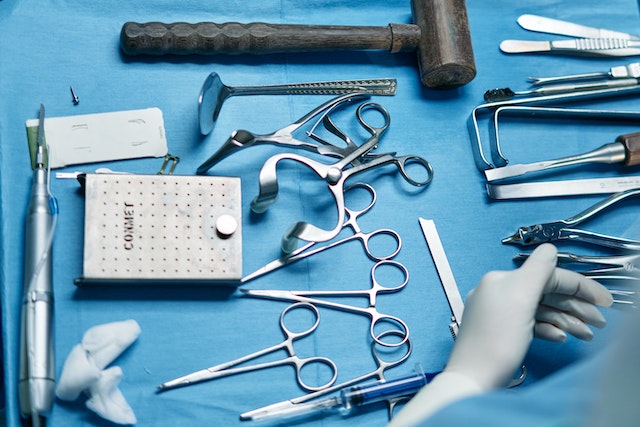
Introduction
Sinusitis is a common condition that affects the mucous membranes of the nose and sinuses. It can cause pain, drainage, pressure or blockage in the face, head and neck. Chronic sinus infections are very serious and require immediate treatment. FESS involves endoscopic surgery without any cuts on your face with minimal complications associated with it!
What is FESS?
FESS is a minimally invasive cutting-edge surgical technique for treating chronic sinusitis and for restoring drainage in patients that have undergone sinus surgery. FESS is also known as Functional Endoscopic Sinus Surgery or FESS.
FESS uses an endoscope that has been designed to look like a camera lens to enable the doctor to visualize the inside of your nose and sinuses without having to open up your face. The endoscope allows them to see inside so they can determine if there's enough space for their instruments and how much tissue needs removal before they start cutting into you (and who knows what else).
The endoscope also has a light source, which allows them to see even when they are working in the dark recesses of your sinuses. The endoscope is inserted into one nostril, passed through the nasal cavity and into the sinus cavity.
What are the main symptoms of sinus disease?
Sinusitis is a common condition that causes discomfort in the nose and sinuses. The main symptoms of sinusitis are:
Headaches
Nasal congestion
Sinus pain, which may be sharp or dull, depending on how active your sinuses are. This pain can also be described as burning or pressure building up behind your eyes and inside your cheeks and forehead.
If you have chronic headaches, facial pain, or swelling around the eye area (including swelling of the upper jaw), these could all be signs of a sinus infection as well!
Sinus infections can be caused by a number of things, including allergies, changes in humidity, pollution, and even stress.
What is the cause of chronic sinusitis?
The cause of chronic sinusitis is often a combination of factors. These include allergies and bacteria, as well as a post-nasal drip (which leads to congestion in your nose).
If you're suffering from chronic sinusitis, it's important to talk with your doctor about what could be causing it so that you can get treatment for the problem.
Some of the most common causes of chronic sinusitis include: -Allergies, such as hay fever and dust mite allergies -Bacteria and viruses, which can cause a cold or flu that lasts longer than it should -Nasal polyps (small growths from inside your nose)
How does Functional Endoscopic Sinus Surgery work?
FESS is a minimally invasive cutting-edge surgical technique for treating chronic sinusitis and for restoring drainage in patients that have undergone sinus surgery. It's performed by an ear, nose and throat specialist, or otolaryngologist.
FESS works by removing only the diseased tissue from your nasal cavities. Then it uses tiny instruments to remove any remaining chaltened bone spicules (tiny bits of calcium salts) which are responsible for drainage problems caused by chronic inflammation and infection in the sinuses around your nose.
The small incisions used in FESS leave little scarring on your face and allow you to regain normal function within weeks following surgery rather than years after traditional surgeries like mastoidectomy (removal of bone spicules).
When should I consider FESS?
If you have had previous sinus surgery and still have symptoms, then FESS may be right for you.
If your symptoms are not improving with medication, if you have a history of chronic sinusitis or allergies, or if you are tired of using nasal sprays to clear out the mucus in your nose—and especially if these things apply to both nostrils—then FESS may be right for you.
If you are interested in surgery, talk to sinus surgery louisville ky or any other doctor. He or she may recommend a CT scan to determine whether FESS is right for you. If so, then make an appointment with a sinus surgeon.
Is FESS better than traditional sinus surgery, with more cuts on my face?
The answer is yes. FESS is a minimally invasive surgery and results in less pain than traditional sinus surgery. It also has many other benefits:
Cost-effective: You'll save money on medical bills because there are fewer incisions (cuts) and stitches, which means you will recover faster after the procedure.
Minimally invasive: The entire procedure takes about 50 minutes, compared to two hours or more with traditional surgeries.
Shorter recovery time: With FESS, you can go home from your doctor's office the same day as your first postoperative checkup; however, it typically takes about a week before all of your stitches have healed completely—a shorter recovery time than what most people experience with traditional procedures like open nose repair or septoplasty (where doctors make large cuts into the soft tissue).
Are there possible complications associated with FESS?
While there are rare complications associated with FESS, these are usually minor. Complications can include bleeding, infection, and drainage of blood or mucus from the sinuses. In addition to this, if an injury occurs to the eye during surgery it may require further treatment by a specialist eye surgeon.
FESS is a minimally invasive cutting-edge surgical technique for treating chronic sinusitis and for restoring drainage in patients that have undergone sinus surgery.
FESS is a minimally invasive cutting-edge surgical technique for treating chronic sinusitis and for restoring drainage in patients that have undergone sinus surgery.
The surgical procedure is performed through a small incision in the nose, just above your natural septum and below your maxillary bone. The endoscopic camera helps us to see very clearly what we are doing inside our nose, so there's no need to cut any tissue or remove cartilage during this procedure.
Conclusion
FESS is a minimally invasive cutting-edge surgical technique for treating chronic sinusitis and for restoring drainage in patients that have undergone sinus surgery.

































